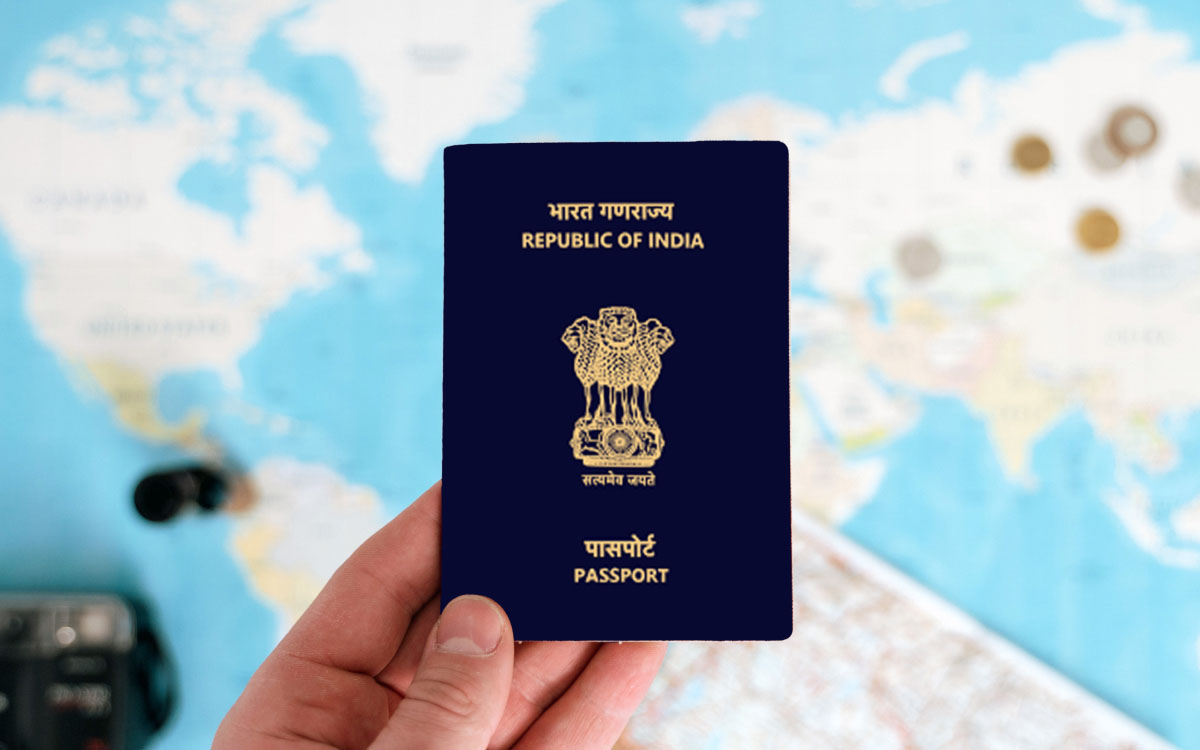How to Start a Business in Portugal
Portugal offers an attractive landscape for entrepreneurs and investors. Known for its strategic location in Europe, robust economy, and growing startup ecosystem, the country has become a hub for innovation and business expansion. Whether you’re a local entrepreneur or a foreign investor, Portugal’s business-friendly environment, coupled with government incentives, makes it an ideal destination to start your venture.
Why Consider Starting a Business in Portugal?
A Flourishing Economic Environment
Portugal is home to a versatile economy, thriving across industries such as technology, tourism, agriculture, and renewable energy. Cities like Lisbon, with their vibrant tech hubs and startup culture, are at the forefront of innovation, offering entrepreneurs diverse opportunities for success.
Attractive Tax Benefits
For foreign entrepreneurs, Portugal’s Non-Habitual Resident (NHR) tax regime provides considerable advantages, including reduced tax rates. Alongside these benefits, incentives like corporate tax breaks and reduced VAT rates for selected sectors further enhance Portugal’s appeal as a business destination.
Access to the European Market
As a member of the European Union, Portugal ensures businesses easy access to the extensive EU market. This strategic position makes it an ideal base for scaling operations and reaching customers across Europe with minimal trade restrictions.
Choosing a Business Structure in Portugal

Selecting the appropriate legal structure for your business in Portugal is crucial to ensuring compliance with Portuguese regulations while meeting your operational needs. Below is a detailed overview of the most common business structures available in Portugal:
Sole Proprietorship (Empresário em Nome Individual)
This structure is suited for entrepreneurs who want to start small businesses without complex legal arrangements.
- Key Features:
- Operated by a single individual.
- No distinction between personal and business assets, meaning the owner is personally liable for all debts.
- Easy and inexpensive to set up.
- Best For: Freelancers, consultants, or small businesses with limited financial risk.
- Considerations: While simple, the personal liability risk can be significant if the business incurs debt or legal issues.
Limited Liability Company (Sociedade por Quotas, Lda.)
A popular choice for startups and small-to-medium businesses, this structure provides a balance of flexibility and liability protection.
- Key Features:
- Can be established with as few as one shareholder (known as a “Unipessoal Lda.”) or multiple shareholders.
- Shareholders’ liability is limited to their capital investment in the company.
- Minimum share capital requirement is €1 per shareholder, although higher capital is recommended for credibility.
- Requires a company bank account and a formal business address.
- Best For: Entrepreneurs looking to limit personal risk while maintaining control over the business in Portugal.
- Considerations: Registration and ongoing compliance involve more paperwork compared to a sole proprietorship.
Public Limited Company (Sociedade Anónima, SA)
This structure is tailored for larger businesses or those planning to raise capital through public or private investment.
“You can learn more about investing in a business through Portugal’s Golden Visa residency-by-investment program.”
- Key Features:
- Requires a minimum of five shareholders and a minimum share capital of €50,000.
- Shareholders’ liability is limited to their share contributions.
- Suitable for companies planning to list on a stock exchange or attract significant investors.
- Best For: Corporations, businesses requiring large-scale operations, or companies targeting institutional investors.
- Considerations: Higher administrative costs and stricter compliance requirements, including mandatory audits and public reporting.
Branch of a Foreign Company
For businesses already established outside Portugal, this option allows expansion into the Portuguese market without forming a separate legal entity.
- Key Features:
- Legally considered an extension of the parent company.
- Operations are subject to Portuguese laws and taxation.
- Requires registration with the Commercial Registry and local tax authorities.
- Best For: Foreign companies aiming to test or expand operations in Portugal.
- Considerations: While simpler than setting up a new company, a branch does not offer the same liability protections as an independent entity.
How to Choose the Right Structure

When deciding on a business structure in Portugal, consider the following:
- Risk and Liability: How much personal risk are you willing to assume? Limited liability structures, such as an Lda. or SA, offer more protection.
- Business Size and Goals: A sole proprietorship is suitable for small ventures, while larger operations or expansion plans may require an SA or branch.
- Capital Requirements: Assess whether you can meet the minimum capital requirements for structures like an SA.
- Operational Complexity: Limited liability companies and public limited companies involve more administrative tasks and compliance obligations than sole proprietorships.
Steps to Start a Business in Portugal
Starting a business in Portugal involves several essential steps. Here’s a detailed guide to navigate each stage of the process successfully:
Market Research and Planning
Before formalizing your business in Portugal, conduct thorough research and create a detailed plan:
- Analyze the Market: Study local demand, competition, and industry trends to identify gaps and opportunities.
- Understand Your Audience: Define your target customers, preferences, and purchasing behavior.
- Develop a Business Plan: Outline your goals, financial projections, marketing strategies, and operational details. A solid business plan is often required for financing and partnerships.
Business Registration in Portugal
To legally operate in Portugal, your business must be registered with the appropriate authorities.
- Where to Register: Portugal’s official business registry, Registo Comercial.
- Key Steps:
- Choose a unique business name and verify its availability.
- Obtain a Portuguese Tax Identification Number (NIF) for the business.
- Submit necessary documentation, such as proof of identity, business name approval, and a registered address.
- Pay the registration fees.
- Timeline: The process typically takes 1–2 weeks, depending on the complexity of your business structure.
Licensing and Permits
Specific industries require additional permits or licenses to operate legally:
- Retail and Hospitality: Health and safety permits.
- Technology: Data protection compliance and intellectual property registration.
- Construction: Environmental and zoning approvals.
Research the requirements for your sector to ensure full compliance. Non-compliance can lead to fines or operational delays.
Tax Registration
All businesses in Portugal must register with the Portuguese Tax Authority (Autoridade Tributária):
- VAT Registration: If your business exceeds a certain turnover threshold, you must register for Value Added Tax (VAT).
- Corporate Tax: Understand the applicable corporate tax rate and obligations.
- Social Security: Register for contributions if you plan to hire employees or pay yourself as a business owner.
Ensure timely registration to avoid penalties. Consulting a tax professional can simplify the process.
Opening a Business Bank Account
A dedicated business bank account is mandatory for most business structures in Portugal:
- Required Documentation:
- Business registration certificate.
- Tax Identification Number (NIF).
- Identification of the business owner(s) or authorized signatories.
- Choosing a Bank: Compare banks for features like low transaction fees, online banking, and support for international transactions.
Once your account is active, you can use it to manage finances, receive payments, and fulfill tax obligations.
Legal and Financial Considerations
Legal Requirements
Complying with Portugal’s legal framework is essential for ensuring smooth business operations. As of 2025, here’s what you need to know:
- Labour Laws:
-
- Employers must adhere to updated minimum wage requirements, which are €820 per month as of 2025, with annual increases expected.
- Employee contracts must outline working hours, job roles, and mandatory benefits such as paid holidays and sick leave.
- Stay informed about Portugal’s work-life balance regulations, including the updated remote work laws encouraging flexible arrangements.
- Intellectual Property:
-
- Protect your trademarks, patents, or copyrights by registering them with the Instituto Nacional da Propiedades Industrial (INPI).
- For tech start-ups, ensure compliance with the EU’s General Data Protection Regulation (GDPR) when handling user data.
- Contracts and Compliance:
-
- Draft clear business contracts, including partnership agreements, vendor contracts, and lease agreements, ensuring they meet Portuguese legal standards.
- Maintain up-to-date business records for tax and audit purposes, as digital record-keeping is now a requirement for businesses with significant turnover.
Financial Incentives
Portugal continues to enhance its financial support for start-ups and growing businesses in 2025, with several programs and initiatives available:
- Grants and Subsidies:
-
- Explore funding opportunities under the revamped Portugal 2030 program, which has replaced Portugal 2020. This initiative allocates EU funds to sectors like technology, sustainability, and rural development.
- Access environmental sustainability grants, particularly if your business aligns with green energy or circular economy goals.
- Loans and Credit Lines:
-
- The Portuguese government offers low-interest loans for SMEs through partnerships with local banks. These loans often target innovation-driven businesses.
- Startup-specific funding programs, such as the Startup Portugal+ initiative, offer seed funding and mentorship.
- Tax Incentives:
-
- Under the Non-Habitual Resident (NHR) tax regime, foreign entrepreneurs enjoy reduced personal income taxes on specific types of income for up to 10 years.
- The Incentivo Fiscal à I&D Empresarial (SIFIDE II) tax credit supports businesses investing in research and development.
- Venture Capital and Angel Investment:
-
- Portugal’s venture capital scene has grown significantly in 2025, with both local and international investors focusing on tech and innovation sectors.
- Consider partnerships with accelerators like Beta-i or Startup Lisboa to gain access to funding and resources.
Hiring and Managing Employees
Labor Laws
Employing staff in Portugal requires compliance with labor laws that ensure employee rights and fair treatment. Recent updates in 2025emphasize inclusivity and work-life balance:
- Employment Contracts:
-
- All contracts must be written, specifying the role, salary, working hours, benefits, and duration (fixed-term, indefinite, or freelance).
- Employers must provide mandatory benefits, including paid annual leave (minimum of 22 days) and sick leave.
- Work Hours and Flexibility:
-
- The standard workweek is 40 hours, with a legal cap of 8 hours per day.
- Recent legislation encourages flexible working arrangements, especially for remote work.
- Overtime compensation is mandatory and regulated based on sector-specific agreements.
- Minimum Wage and Equal Pay:
-
- As of December 2024, the national minimum wage is €820 per month. Employers must ensure fair and equal pay across genders and roles.
Payroll and Social Security
Managing payroll accurately is essential for compliance and employee satisfaction:
- Social Security Contributions:
-
- Employers are required to contribute 23.75% of an employee’s gross salary to Social Security, covering healthcare, pensions, and unemployment benefits.
- Employees contribute an additional 11%, deducted from their salary.
- Tax Withholding:
-
- Income tax is deducted at source based on progressive rates. Ensure your payroll system reflects current tax brackets for accurate calculations.
- Digital Payroll Systems:
-
- Many businesses are now adopting automated payroll software to comply with updated digital tax reporting standards.
Recruiting Employees
Finding the right talent can be straightforward with a well-planned recruitment strategy:
- Online Platforms:
-
- Use popular platforms like LinkedIn, Indeed Portugal, and local job boards to advertise vacancies.
- Specialized platforms, such as ITJobs.pt for tech roles, can help target specific industries.
- Recruitment Agencies:
-
- Consider partnering with agencies for specialized roles or senior positions. Agencies in Portugal often provide pre-vetted candidates, saving time.
- Networking Events:
-
- Attend industry-specific meetups and job fairs. Portugal’s vibrant tech and start-up scene frequently hosts recruitment-focused events in cities like Lisbon and Porto.
- Government Support:
-
- Explore initiatives like IEFP (Institute for Employment and Vocational Training), which connects businesses with skilled workers and offers hiring incentives.
Growing and Marketing Your Business in Portugal

Local Marketing Strategies
Building a strong local presence in Portugal requires adopting modern marketing techniques tailored to your audience:
- Digital Marketing:
-
- Leverage search engine optimization (SEO) to rank higher in local searches and attract Portuguese customers.
- Use social media platforms like Instagram, TikTok, and Facebook to engage with the tech-savvy audience.
- Email marketing remains an effective tool for maintaining customer relationships and promoting offers.
- Influencer Collaborations:
-
- Partner with local influencers, including niche bloggers and social media personalities, to enhance brand visibility and trust.
- Platforms like Blogger Portugal and Influencity can help identify the right influencers for your business in Portugal.
- Localized Content:
-
- Ensure your marketing content is available in Portuguese to resonate with local customers. Use culturally relevant messaging and imagery to connect more effectively.
Networking Opportunities
Portugal’s vibrant business ecosystem offers numerous opportunities for networking and collaboration:
- Start-up Hubs:
-
- Join incubators like Start-up Lisboan or accelerators like Beta-i to gain mentorship, resources, and funding connections.
- Lisbon and Porto are hotspots for tech and innovation events.
- Business Events:
-
- Attend the Web Summit, one of the world’s largest tech conferences held annually in Lisbon, to showcase your business in Portugal and meet potential partners.
- Explore local trade shows and expos in sectors like tourism, renewable energy, and agriculture for B2B networking.
- Industry Associations:
-
- Become a member of trade and industry associations to stay informed about trends and regulations while building a network of peers and mentors.
Scaling Internationally
Portugal’s strategic location within the EU provides seamless access to international markets:
- European Market Reach:
-
- Use Portugal as a gateway to expand your business across Europe, leveraging the EU’s single market policies.
- Explore cross-border e-commerce opportunities with simplified VAT rules for EU countries.
- Digital Expansion:
-
- Adopt multilingual digital platforms to cater to international customers. Platforms like Shopify or WordPress with WooCommerce offer easy integration for global sales.
- Export Assistance:
-
- Portugal’s government agencies, like AICEP Portugal Global, provide support for businesses aiming to export products or services.
By combining effective local marketing strategies, engaging with Portugal’s business ecosystem, and leveraging its position in the EU, you can grow your business in Portugal and scale it to international heights with confidence.
Challenges and How to Overcome Them
Navigating Bureaucracy
Portugal’s administrative processes, though improved in recent years, can still pose challenges for new businesses:
- The Challenge: Paperwork and regulatory requirements may feel overwhelming, especially for those unfamiliar with the Portuguese system.
- How to Overcome It:
- Work with local consultants or legal experts who understand the intricacies of Portugal’s business regulations.
- Utilize online tools like Empresa na Hora for quicker business registration and digital platforms offered by government agencies for streamlined processes.
- Engage with chambers of commerce, such as the Portuguese Chamber of Commerce and Industry, for guidance and support.
Language Barriers
While English is widely used in business settings, especially in urban centers, Portuguese remains the dominant language for official procedures and customer interactions:
- The Challenge: Difficulty understanding official documents, contracts, and communication with local authorities can hinder smooth operations.
- How to Overcome It:
- Hire bilingual staff or work with a professional translator to ensure accurate understanding of all documentation and communications.
- Invest in learning Portuguese through courses or language apps tailored for business professionals. Even basic proficiency can build rapport with customers and partners.
- Leverage AI translation tools for initial communication, though human oversight is recommended for accuracy in legal or formal settings.
Conclusion
Portugal stands out as an exceptional destination for entrepreneurs, offering a thriving economy, a welcoming business environment, and unparalleled access to global markets. With its mix of financial incentives, innovative ecosystems, and strategic location within the European Union, the country provides an ideal foundation for launching and growing a business.
By following the comprehensive steps outlined in this guide, you’ll be equipped to navigate the process of starting a business in Portugal with confidence. Whether it’s leveraging local resources, exploring government incentives, or connecting with Portugal’s dynamic startup hubs, the opportunities are vast and rewarding.










